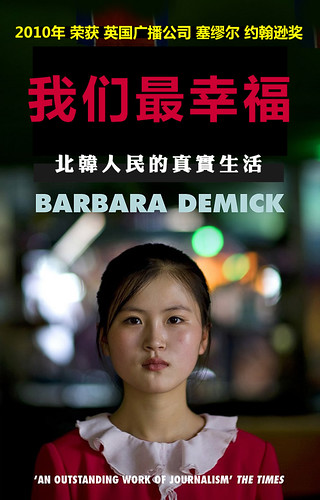原文:Building Haiti’s Economy, One Mango at a Time
作者:PAUL COLLIER and JEAN-LOUIS WARNHOLZ
發表時間:January 28, 2010
譯文:投資海地 機不可失
譯者:messiahxu(@messiahxu)
IN an astonishing outpouring of generosity, nearly half of American households have donated money to help Haiti recover from the recent earthquake. The United States government and other governments around the world, for their part, have sent thousands of relief workers and have pledged $1 billion so far. But Haitians need something more fundamental than relief from the present situation; they need jobs that they can count on for years ahead. For this, the private business sector is essential. Luckily, business leaders are meeting now in Davos, Switzerland, and Haiti is prominent on their agenda.
為了幫助海地人民在地震后重建家園,美國人表現出了不可思議的慷慨,接近半數家庭都參加了捐款。目前為止,世界各國政府已經向海地派遣了數千名救援人員并承諾了十億的援助款。不過就目前情況而言,海地人民的需求并不是救濟這么簡單,他們需要的是在未來幾年能夠指望養家糊口的工作。因此,民營商業變得至關重要。不過幸好,這一點已經被達沃斯論壇上的商業領袖們提上了議事日程。
Haiti is by far the poorest country in the Western Hemisphere, and yet it need not be so, because unexploited economic opportunities abound there. Some of the best mangoes in the world grow in Haiti — though too many of them rot, offshore from the world’s largest market, for want of adequate roads and well-governed ports. Excellent coffee is grown in the Haitian mountains, but much of it is sold informally across the border to coffee producers in the Dominican Republic, who reap most of the profits.
海地是目前西半球最貧窮的國家,當然,如果他抓住了那些無處不在的商業機遇的話,本不會落得此般田地。。。。。海地的山中出產優質的咖啡,可由于所有銷售都是如小農經濟般的運送到多米尼加咖啡制造商手中便停止,于是,大部分的利潤便離他們而去了。
Haiti also has many qualities attractive to tourists: a warm climate; magnificent white-sand beaches and turquoise water; Tortuga, the famous pirate island off the northern coast; and the Citadel, a mountain fortress erected after Haiti’s independence in the early 19th century to fend off colonial powers, now a World Heritage site. Still, it is one of the least visited places in the Caribbean.
海地同樣也是一個旅游資源豐富的國家,溫暖的氣候,宏偉的白色沙灘,墨綠色的海水,海岸北部的著名海盜島--通古加,以及佇立于山間在十九世紀時為海地獨立阻擋住侵略者的城堡,如今這里已經是世界遺產地,也是加勒比海地區最少人游覽的地區。
The Hope II trade pact with the United States, signed in 2008, granted Haiti duty-free access to the American apparel market for the next decade. Already, as a result of the deal, many garment factories situated along Haiti’s eastern border (so as to use Dominican electricity and ports) have become profitable and competitive with Chinese garment makers. But light manufacturing could be much bigger in Haiti — if the Haitian government and donors would credibly commit to providing functioning roads, electrical grids and ports, and if outside private capital would invest, patiently, in Haitian businesses.
2008年與美國簽訂的《海地机会伙伴促进法案II》確保了海地可以在2018年之前免稅進入美國服裝市場。同時也是的海地東部的一系列服裝廠即使在與中國服裝廠的競爭中也仍然能夠盈利。其實海地的輕工業可以更發達的,只要海地政府與捐助人可以信守承諾建造公路、電網和港口,只要外部資本在海地商業上的投資更耐心一點。
Poverty and a history of coups and trade embargoes have pushed Haiti’s reputation as a place to do business to near the bottom of the global pile, alongside countries like Afghanistan, Somalia and Iraq. But Haiti is far safer and offers far more market opportunities than those conflict-ridden nations.
貧窮且政變不斷與閉關鎖國的歷史使得海地在全球范圍內的商業聲譽幾乎為零,類似于阿富汗、索馬里和伊拉克。不過其實海地要遠比這哥仨安全,而且市場機會也要遠遠多于這些沖突不斷的國家。
The obvious difficulty in Haiti is that its economic center, Port-au-Prince, is now in shambles. Private investors are naturally wary of jumping into a market too soon, before it is lively enough to provide certain kinds of support. After all, many businesses can be profitable only if other businesses exist alongside them. Ships don’t sail directly from Haiti to Florida because there aren’t enough goods to warrant dedicated routes. In the meantime, without reliable routes for direct export of goods, investment in production in Haiti is stymied.
目前最大的難題集中在已成一片廢墟的海地經濟中心——太子港。在没有得到确切的支持之前,私人投资者对于贸然进入一个市场是非常谨慎的。毕竟,没有什么生意可以独立于其他生意而自行存在。而因为没有足够的运量支持一条专用航线,所以船只无法从海地直达佛罗里达。与此同时,对海地生产业的投资也受制于此。
Even within a single manufacturing sector, it helps to have many businesses operating together. Garment factories, for example, cluster together, because they share a common need for support services. In Haiti, the cluster of garment makers has been too small even to keep repair shops in business; it can take weeks to fly in a technician to fix a broken sewing machine. So, production costs are high because there are too few investors, and there are too few investors because costs are so high.
即使是僅有一個制造業部門,這也有同樣助于企業之間的協作。比方說服裝企業就可以因為共同的服務對象而聚集稱為產業鏈。可是海地的服裝制造業規模實在太小了,甚至物理維持自己的維修點,於是他們就不得不經常耗費數周時間去找維修人員來修理損壞的機器。因此,投資者寥寥造成了生產成本高昂,然後生產成本高昂又進一步阻礙了投資者的進入。
The way to address this chicken-and-egg problem is for individual private investors to coordinate with one another. This would not be a new strategy; in the 19th century, the American West was developed not as a process of gradual diffusion but in spasms of local investment booms, financed by enthusiastic outsiders. The earthquake could usher in such a boom in Haiti.
解決這種雞生蛋,蛋生雞的問題的辦法就是給予所有私人投資者平等的地位。這其實並不是一條新政,19世紀美國西部大開發時就沒有采用一貫的广積梁高築墻緩稱王路線,而是靠著病毒爆發式的熱情的外行投資者的投資。所以説,多難興邦,或許這次地震就是海地發展的契機。
The World Economic Forum in Davos provides an opportunity for businesses that might invest in Haiti — international fashion brands, hotels and coffee chains, for example — to coordinate with companies that provide logistics and markets, so that together they could make mutual commitments. The foundation for such coordination has already been laid — by Bill Clinton, who led 200 international investors to Haiti last October. As a result of this effort, international chains like Best Western and Choice Hotels started building new hotels in Haiti.
達沃斯全球經濟論壇為商人們提供了這麼一個在海地投資的機會,不管是國際時裝品牌、酒店還是連鎖咖啡店,都將保證其得到協調的物流管道與市場,以便於大家實現共同的承諾。而這種協調的基礎已經有克林頓一手完成——他在去年十年派遣了200名投資者前往海地。因此,數家國際連鎖酒店已經開始在海地劃地建樓。
The earthquake has, of course, changed opportunities in Haiti, but it has not necessarily reduced them. The American construction industry is mired in deep recession and so has the excess capacity to meet Haiti’s sudden need for low-cost housing, roads, bridges and other structures. If American construction firms can harness Haitian labor to reconstruct (safer) homes, then the challenge will be to lure other businesses in their wake so that temporary jobs in reconstruction are replaced by long-term jobs in manufacturing, agriculture and tourism.
這次地震的確使在海地的機會發生了變化,但這並不代表機會減少了。美國的建筑業如今已陷入了大衰退,因此完全有充足的能力應付海地的突然需求,包括廉租房、公路、橋樑以及其他基礎設施的建設。
In meeting this challenge, banks and private venture capital also have an important role to play. Haiti needs generous venture capital that encourages some firms to move in first. George Soros, the investor and philanthropist, has recognized this need by committing $25 million for smart investments that catalyze Haiti’s competitive advantages. Many more such commitments are needed.
為了迎接這一次挑戰 銀行與私人風投也要在其中扮演重要的角色。海地需要風投們慷慨解囊以鼓勵將要進入的公司企業。投資家與慈善家索羅斯已經承諾將給那些聰明的投資者提供總計2500万的資金支持來強化在海地開發的競爭優勢。但這樣的承諾我們還需要更多。
For now, even public sources of risk capital like the World Bank’s International Finance Corporation and Britain’s Commonwealth Development Corporation have no special provision for the kind of coordinated pump-priming investment that’s required in Haiti. Most public capital goes to emerging market economies where private investment no longer needs to be encouraged. Haiti, with its genuine opportunities and immediate needs, provides a chance for public finance organizations to find new relevance. It is also a chance for private business to show it can take a major role in meeting the gravest human needs.
到目前為止,甚至像世界銀行的國際金融公司和英聯邦開發公司這樣的公共風險投資都沒有為海地目前需要的引導性投資的特別規定。大部分的公共資本都在民營資本根本不需要鼓勵的新興市場里。如今,擁有真正機會和現實需求的海地,為公共財政部門們提供了一個尋找到新經濟增長點的機會。當然這也是私營企業展示其有資格承擔更加重大的挑戰的機會。

本作品采用知识共享署名-非商业性使用-相同方式共享 3.0 Unported许可协议进行许可。









0 comments:
发表评论